
Carrie R
Sewing is my passion. I took up needle and thread at the tender age of eight, and fell in love with the craft in my early teens. That craft blossomed as I continued my education, earning a Bachelor of Science Degree in Costume Design.
In my early college days, I was introduced to the art of vestment making. Working with needle and thread, fabric and trims to make beautiful vestment and inspire and encourage others to use their skills in service for the Lord's House is now my heart's desire.
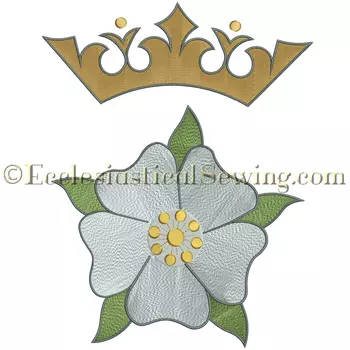
Introducing the Christmas Rose Collection by Ecclesiastical Embroidery. This inaugural design features a single white rose with a yellow center and a gold crown. Available for instant download in various sizes, more designs will follow in the coming year. Stitched by embroidery machines, these designs celebrate the gifts of the Christ Child’s birth.
Like this:
Like Loading...
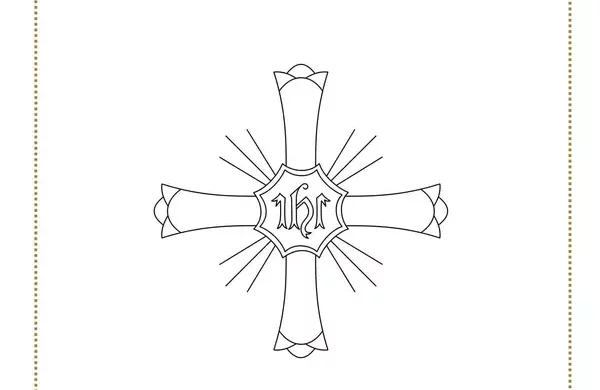
This is a pre-cut keep sake baptismal towel that is intended to be given to the parents of a newly baptized infant. For an older child or an adult, one might select to embroider a purificator or lavabo-sized linen. This towel is small so that one gets used to the concepts of turning up linen hems and mitering corners without having to stitch long hems at the beginning.
Like this:
Like Loading...
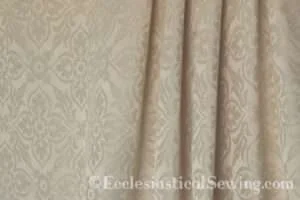
Advent is a season of preparation that leads up to one of the most Festive seasons in the Church year. Christmas will soon be here, and with it comes the splendor and joy of the birth of our Redeemer, the Christ Child. Each season in the church year is marked by a change in vestment color and symbols. The color for Christmas is white or gold. White is also the color used for Epiphany, Transfiguration Sunday, and Easter, along with several other festivals throughout the church year.
Like this:
Like Loading...
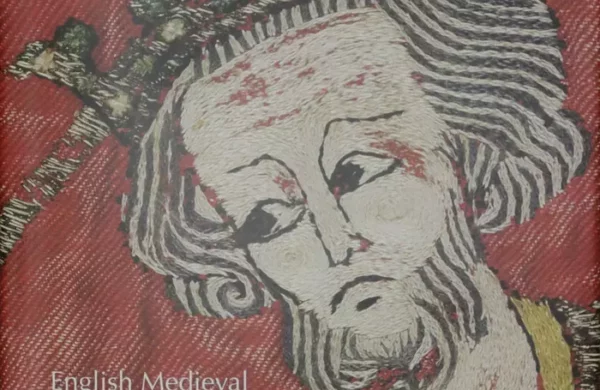
The book is titled “English Medieval Embroidery Opus Anglicanum,” and has been published in association with the Victoria and Albert Museum. The book is the result of the research that was undertaken in preparation for the Opus Anglicanum Exhibit. The first major exhibit on the topic of Medieval Embroidery in almost fifty years. The book created for the exhibit expected to become the standard work of reference. It includes detailed illustrations of works in the exhibit as well as comparable pieces from other collections to aid discussions.
Like this:
Like Loading...
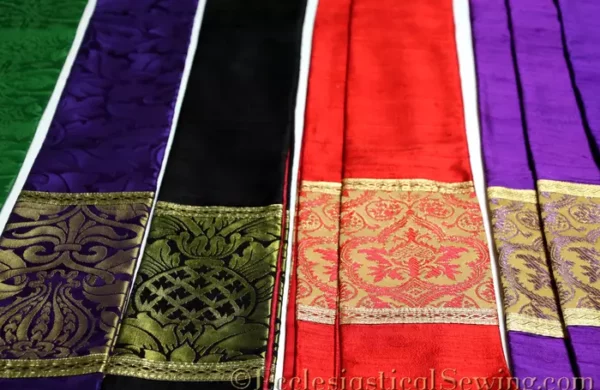
A collection of stoles is being prepared for purchase, with finishing touches such as tassels and neckline chains. Hand-made stoles will also be available for purchase, created using traditional techniques and high-quality standards. All stoles will be made in the USA by partnering with ecclesiastical tailors and seamstresses.
Like this:
Like Loading...
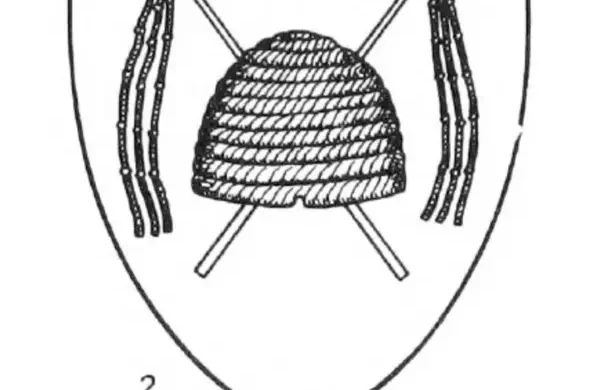
Born as Aurelius Ambrosius in 334 A.D., the man we know as St. Ambrose grew up in Gaul where his father held a high post as prefecture. It is said that a swarm of bees visited the infant Ambrose, landing upon his eyes and lips. This tradition claims to be the source of Ambrose’s ability later in life to speak in honeyed, caring words. So, the beehive has become the symbol most frequently associated with St. Ambrose because it is a symbol of eloquence. The symbol for St. Ambrose relate to the ex-communication of Emperor Theodosius for his massacre of the people of Thessalonica.
Like this:
Like Loading...
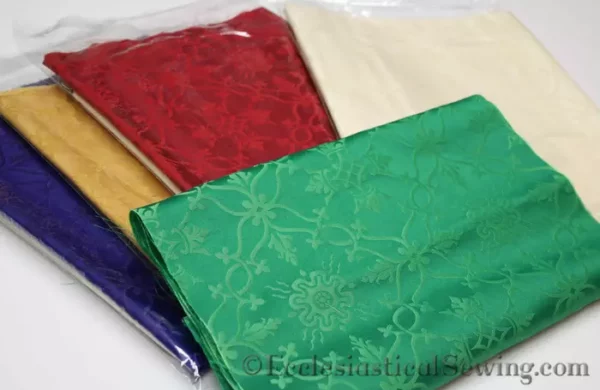
Ecclesiastical Sewing offers a variety of clergy stole patterns, including the 4 1/2″ wide pastoral or priest stole pattern. Refined over time and digitized by a professional pattern maker, it includes traditional markings, grain lines, and notches for easy assembly.
Like this:
Like Loading...
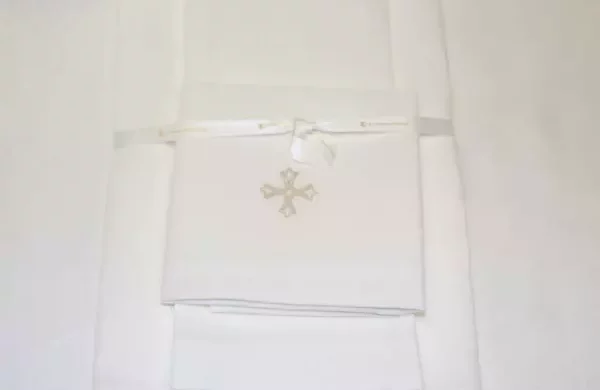
Linens are an item used every day or every week in the life of most churches. Linens are used for the most sacred and important part of a church service during the service of Holy Communion or the Eucharist. The small church linens or altar linens used in the Divine Service are the Fairlinen which is placed directly on the altar, the corporal, the lavabo towel, and the purificator. Some churches use a small side table that is covered by a Credence cloth.
Like this:
Like Loading...
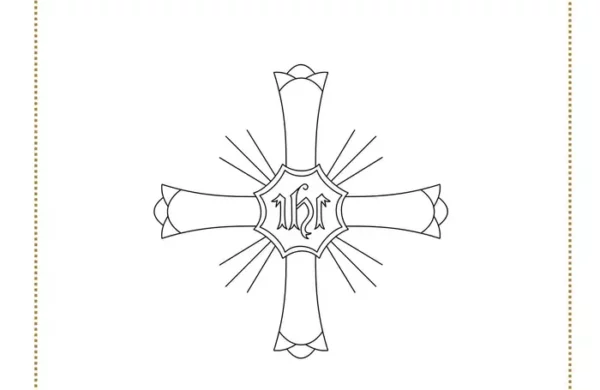
Carrie has written an instruction booklet for making and embroidering small Church Linens and altar linens. This booklet describes the making and care for the small altar linens used during the service of Holy Communion or the Eucharist. Also included in the booklet is a collection of original and vintage hand embroidery designs. This booklet is our gift to you for subscribing to the Ecclesiastical Sewing email list!
Like this:
Like Loading...

Renaissance Altar Linen – 100% Irish Linen fabric, which is 60″ wide. It feels like a vintage altar linens as it has similar weight and weave. This linen has a nice hand and body and presses well. Small altar linens and altar Fairlinens are made from this pristine white Irish Linen fabric.
Like this:
Like Loading...
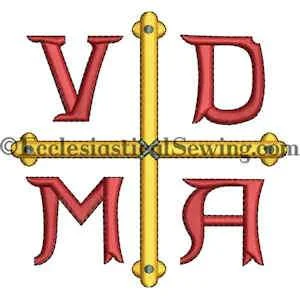
Our collection of digital machine embroidery designs, offers most liturgical machine embroidery designs in a wide range of digital files. File formats are DST, EMB, EXP, HUS, JEF, PCS, PES, and XXX. Some formats may not be available for certain designs based on size. Some designs, such as the VDMA Cross Symbol are original designs that we’ve created.
Like this:
Like Loading...
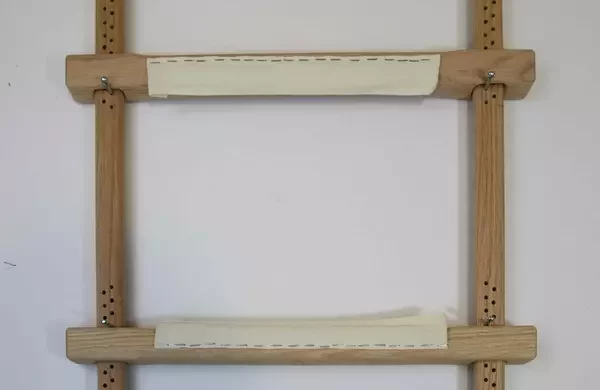
A slate frame in hand embroidery provides even tension for stitches. It allows the embroiderer to work with both hands free, making it the preferred frame for professionals. The instructors at the Royal School of Needlework use this frame for their courses.
Like this:
Like Loading...
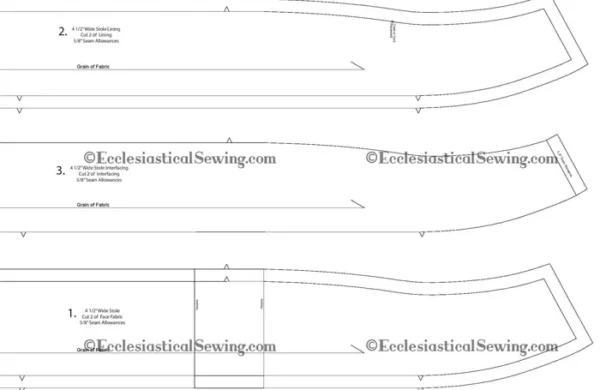
Introducing our new stole patterns! The first is a versatile 3 1/2-inch stole with lengths of 46″ or 55″, perfect for deacons or priests. Next, the V-neck stole is broader, longer (56″), ideal for embellishments. The Tapered stole, our third design, starts narrow and gracefully tapers to a short or long end.
Like this:
Like Loading...
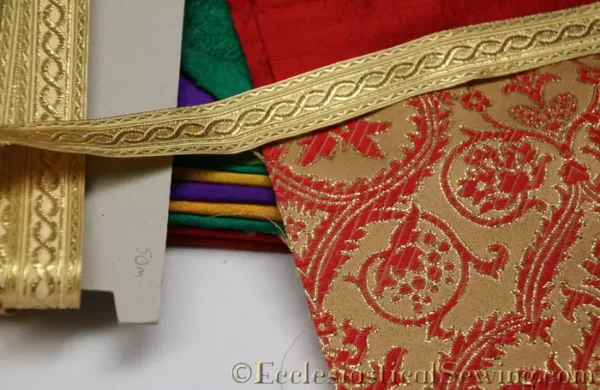
Our new 4 1/2″ pastoral stole has a guideline for cutting stole orphreys for use at the lower edge, as well as for use on the upper chest. The orphrey size and guideline placement have been developed based on the design rule of thirds and by years of practice. Now, these placement and cutting sizes are “guidelines” and are not meant to take the place of checking to verify that the placement works for each and every situation. They are intended to help create a sense of balance and proportion when making a pastoral stole, by providing a starting point for the placement of orphrey bands or appliques.
Like this:
Like Loading...
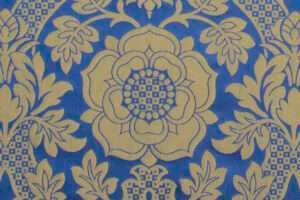
Advent, the first season in a new church year, and Lent are penitential seasons – a time of reflection and a time to focus on the fulfillment of a promise. Color is used within the church to remind us that Advent and Lent are Penitential Seasons. Violet or Purple are the colors used during these seasons of the church year. Under the heading of purple or violet, come a few other colors. Rose is the color used in the third week of Advent and the fourth week of Lent to remind us of the slight change in the reading that has a lighter meaning.
Like this:
Like Loading...

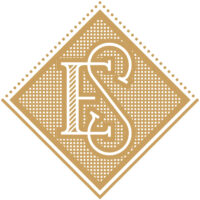














You must be logged in to post a comment.